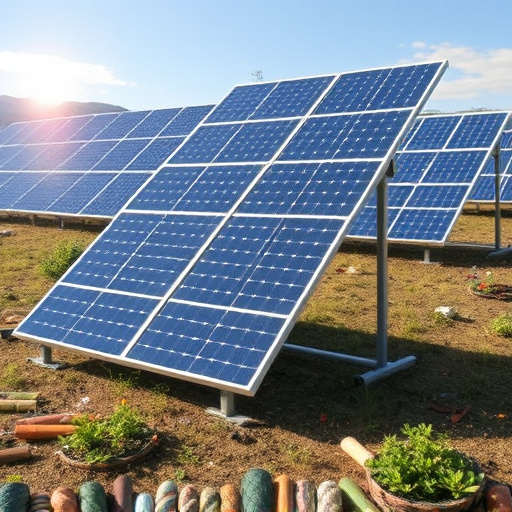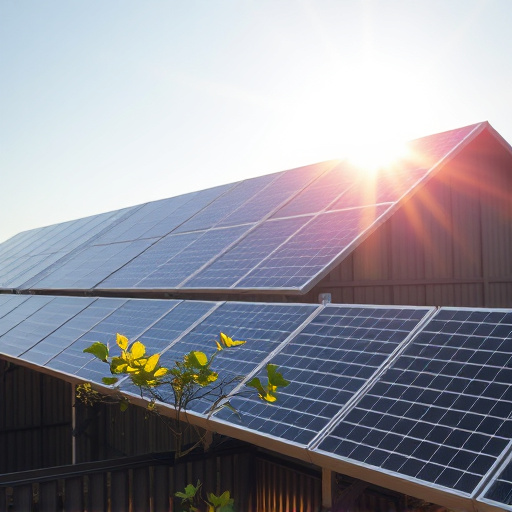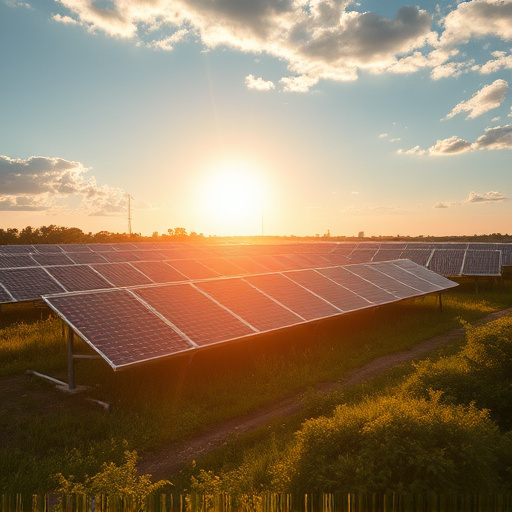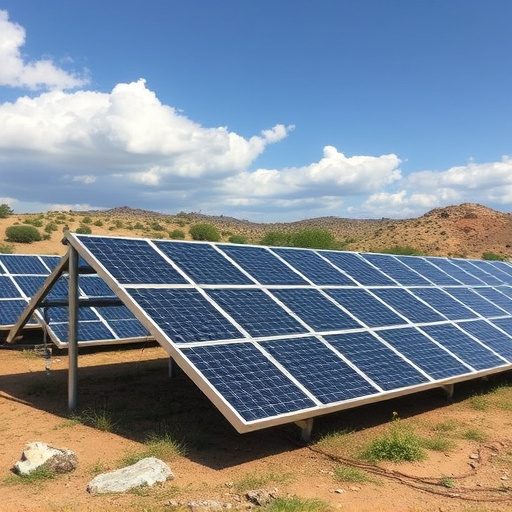Community solar shares provide individuals and businesses a collaborative, low-cost way to participate in clean energy initiatives without significant upfront investment. By pooling resources, communities own shared solar farms, distributing costs and electricity equitably. This model enhances community engagement, democratizes access to solar power, reduces carbon footprints, and fosters efficient use of renewable solar power sources. Community solar farms offer an accessible, affordable way for residents to leverage solar energy, contributing to a greener future while reducing utility expenses.
Community solar shares are transforming clean energy access and fostering collaborative sustainability. This collaborative approach to harnessing solar power enables residents to collectively benefit from shared solar farms. By joining forces, communities can own and manage solar installations, lowering electricity costs for all participants while promoting environmental stewardship.
This article explores the emerging collective farm model, its advantages, and the multifaceted benefits it brings to both residents and the planet, highlighting the growing role of solar power in shaping a greener future.
- Understanding Community Solar Shares: A Collaborative Approach to Clean Energy
- The Collective Farm Model: How It Works and Its Key Advantages
- Benefits for Residents: Accessing Affordable, Sustainable Electricity
- Environmental Impact: Reducing Carbon Footprints and Promoting Eco-Conscious Living
Understanding Community Solar Shares: A Collaborative Approach to Clean Energy

Community solar shares represent a collaborative approach to harnessing the power of solar energy, offering a unique way for individuals and businesses to participate in clean energy initiatives without the need for significant upfront investment. By pooling resources, communities can collectively own and benefit from solar farms, sharing both the costs and the generated electricity. This model democratizes access to solar power, enabling a wider range of people to contribute to a sustainable future.
This collaborative approach has numerous advantages. It fosters a sense of community ownership and engagement, where neighbors and local businesses work together towards a shared goal of reducing carbon footprints. Moreover, it allows for more efficient use of solar resources, as larger-scale projects can be implemented and maintained with collective efforts, ultimately driving down costs for all participants and contributing to a greener environment through increased adoption of renewable energy sources like Solar Power.
The Collective Farm Model: How It Works and Its Key Advantages

The collective farm model for solar power is a collaborative approach where a group of individuals come together to own and operate a solar farm. This innovative concept allows communities to collectively benefit from the generation of clean, renewable energy. Each member contributes financially or through labor to install and maintain the solar panels, sharing both the costs and the returns.
The key advantages of this model are significant. It democratizes access to solar power, enabling even those with limited financial means to participate in the benefits of renewable energy. Collective farms can leverage bulk purchasing power, leading to lower installation costs for all members. Additionally, shared ownership fosters a sense of community engagement and collective responsibility, enhancing the sustainability and longevity of the project.
Benefits for Residents: Accessing Affordable, Sustainable Electricity

Community solar farms offer residents an accessible and affordable way to benefit from solar power. By collectively owning or subscribing to a solar farm, individuals can enjoy clean, renewable energy without the significant upfront costs often associated with installing solar panels on their own properties. This democratizes access to sustainable electricity, enabling more people to contribute to a greener future.
Furthermore, community solar shares provide price stability and security. Residents lock in their rates for a set period, protecting them from fluctuating energy costs. This benefit is particularly significant as traditional electricity prices continue to rise, making community solar an attractive and cost-effective alternative for households looking to reduce their carbon footprint and utility expenses.
Environmental Impact: Reducing Carbon Footprints and Promoting Eco-Conscious Living

Community solar farms offer an environmentally friendly approach to energy generation, allowing individuals and businesses to contribute to a greener future. By participating in these shared initiatives, communities can collectively reduce their carbon footprints significantly. Solar power, a renewable resource, has immense potential to mitigate climate change, as it doesn’t produce greenhouse gas emissions during electricity generation. This is especially beneficial for urban areas where land space is limited; community solar projects provide an efficient solution to harness clean energy without the need for vast expanses.
Moreover, these farms promote eco-conscious living by encouraging a shift towards sustainable practices. They raise awareness about the impact of energy consumption and inspire individuals to take responsibility for their environmental footprint. With each panel generating electricity, communities actively contribute to a cleaner, more sustainable planet, ensuring a brighter future for generations to come.
Community solar shares, through the collective farm model, represent a powerful collaborative approach to harnessing the benefits of solar power. By pooling resources and sharing in the collective energy production, residents gain access to affordable, sustainable electricity while collectively reducing their carbon footprints. This innovative system fosters eco-conscious living, promoting a greener future for all involved. Embracing community solar shares is not just an investment in clean energy; it’s a step towards a more resilient and environmentally friendly society.
